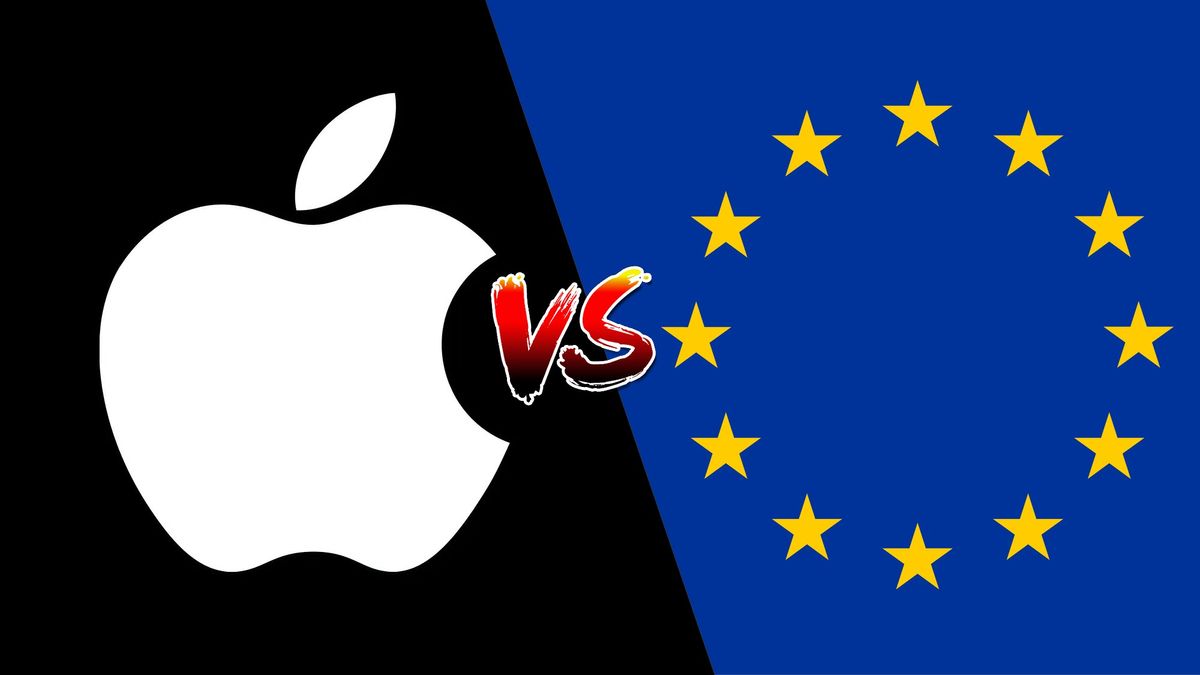The upcoming release of iOS 18 has ignited a firestorm of controversy in Europe. Apple’s decision to withhold key features, particularly the much-anticipated Apple Intelligence AI suite, has sparked a fierce debate between the tech giant and the European Union (EU). This article delves into the heart of the issue, exploring the reasons behind Apple’s move, the EU’s concerns, and the potential impact on European users.

Apple Intelligence Goes Dark in Europe: A Privacy Conundrum?
Apple cites potential privacy and security risks as the primary reason for withholding Apple Intelligence features in Europe. The company expresses apprehension that the EU’s recently enacted Digital Markets Act (DMA) might force them to implement features that compromise user data security.
One example Apple raises is the potential requirement for iPhone mirroring on Macs. This feature, currently unavailable, would allow users to display their Android phone’s screen on a Mac. While it offers convenience, Apple argues that opening up such functionalities could create security vulnerabilities, potentially exposing user data on both devices.
The DMA: Leveling the Playing Field or Stifling Innovation?
The EU’s stance paints a different picture. Margrethe Vestager, head of the European Commission, views Apple’s decision as a strategic move to avoid competition within the European market. The DMA aims to create a more level playing field for app developers and device makers, potentially diminishing Apple’s tight control over its ecosystem.
Vestager argues that Apple’s concerns are unfounded. She highlights the DMA’s potential benefits for European users, such as granting access to game streaming services and retro game emulators that were previously unavailable due to Apple’s app store restrictions.
A Public Relations Gamble? Decoding Apple’s Strategy
Some experts speculate that Apple’s stance might be a calculated public relations move. By portraying the DMA as anti-consumer and potentially threatening user security, Apple aims to sway public opinion against the regulation. They argue that while the DMA restricts Apple’s control, it has also brought tangible benefits for European users.
This strategy highlights a complex situation. Apple values user privacy and security, but the line between these concerns and potential dominance in the European market gets blurry.
The Fallout for European Users: Delayed Features or Permanent Exclusion?
For now, the situation remains fluid. Developers outside the EU can still test features like iPhone mirroring and screen sharing during the iOS 18 beta. Additionally, a public beta release of Apple Intelligence is scheduled outside of Europe next month.
However, European users face an uncertain future. They’ll have to wait for Apple to find a solution that addresses both security concerns and the DMA’s requirements for interoperability and reduced control within the Apple ecosystem. This could translate to significant delays for these features or even their permanent exclusion from the European iOS 18 release.
The ongoing negotiations between Apple and the EU will determine the final outcome. Whether Apple can achieve a balance between user security and the DMA’s competition requirements will be crucial in deciding if European users get to experience the full spectrum of iOS 18 features.
Frequently Asked Questions:
Q: Why is Apple not releasing all of the iOS 18 features in Europe?
A: Apple is concerned that the EU’s Digital Markets Act (DMA) might force them to implement features that jeopardize user privacy and security.
Q: What are some potential security risks Apple worries about?
A: As an example, Apple raises the issue of iPhone mirroring on Macs. They argue that opening up such functionalities could create vulnerabilities and expose user data on both devices.
Q: What does the EU say about Apple’s concerns?
A: The EU believes Apple’s concerns are overblown and that the DMA can benefit European users by increasing competition and allowing access to previously restricted apps and services.




